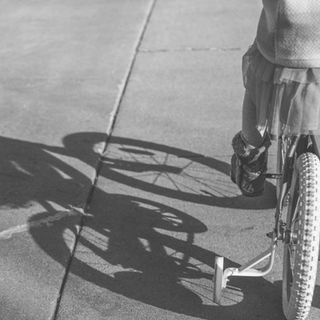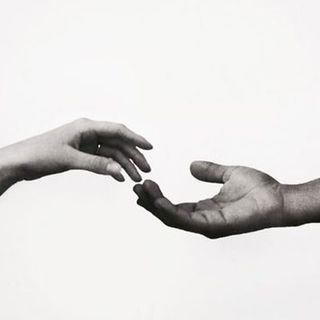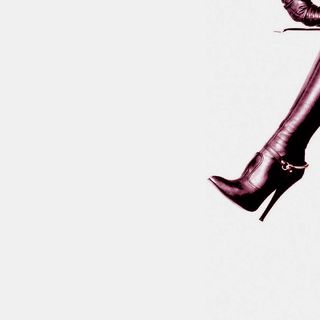
When Fed‑Up Straight Women Wish They Could Date Women, They’re Unconsciously Being Bad Allies
Canonizing same-sex relationships as perfect substitutes for abusive heterosexual relationships is not a good look.

Bemoaning the less-than-pleasant side effects of heterosexuality is a common social media and offline bonding phenomenon for heterosexual women — which is fine because everybody deserves to vent about the myriad ways their partners/potential partners disappoint or irritate them. However, a more recent phenomenon that definitely isn’t okay plays out something like this: “Ugh, men are trash. I just wish I could date women instead.”
This particular sentence is rampant. It is proclaimed in social media posts; it accompanies knowing nods in conversation and is also often meant as a compliment when relayed to a woman who actually dates women. Post-#MeToo, this sentence is also loaded with the exhaustion of cis-heterosexual women dealing with the quagmire that is navigating patriarchal entitlement and consent. The assumption is that the beauty of female friendships and solidarity would infuse queer women’s relationships as compared to the trauma-ridden, exhausting gender roles of cis-heterosexual relationships.
The assumption above is also a load of garbage. Queer women are not substitutes for abusive men. Queer women are not perfect, saintly unicorns who exist to provide ideal relationships. Same-sex relationships with two women are not perfect romantic comedies.
Related on The Swaddle:
Corporate Investment in Pride Increases Visibility but Doesn’t Expand Rights
“As we all know, the politics of lesbian relationships aren’t always simple. Despite popular belief among the straights, two women together will not automatically mean perfect communication. In fact – with the possible exception of my mother – I don’t know a single woman who would characterize lesbian relationships as straightforward,” writes Claire Heuchan for AfterEllen. She adds, “And yet het[ero] female friends will say to me, not quite joking, that lesbian relationships must be easier since both people in the relationship are women… Our life experiences aren’t separated by the gulf of gendered inequalities. Both being positioned as women in this world creates a level of shared understanding. But the politics of difference can still be a challenge in lesbian relationships.”
Related on The Swaddle:
Why You Should Include Your Preferred Pronouns in Your Social Media Bio
Women who love women do have a history of intimate partner violence, which often goes unspoken to avoid aiding the demonization of an already vulnerable group. About 17% to 45% of lesbians report having been the victim of a least one act of physical violence perpetrated by a lesbian partner. Another U.S.-based study with a nationally representative sample used from the US National Violence Against Women Survey indicated that lesbian women were at higher risk of violence from a partner followed by heterosexual women, gay men, and heterosexual men. The same study also indicated that bisexual women sustained the highest amount of abuse and were more likely to be victims of every type of intimate partner violence, except psychological.
A factsheet about lesbian partner violence put together by Dr. Suzana Rose from the U.S National Violence Against Women Prevention Research Center and The University of Missouri at St. Louis states that “Lesbians who abuse other women may do so for reasons similar to those that motivate heterosexual male batterers.” The factsheet, drawn from research, states that lesbians abuse their partners to gain and maintain control and/or to avoid feelings of loss and abandonment. And, like hetero male batterers, many lesbian batterers grew up in violent households and were physically, sexually, or verbally abused, and/or witnessed their mothers being abused by fathers or stepfathers.
While statistics do exist to prove a point, the assumption that women are infallible while men are predatory is patronizing to women, notwithstanding the ridiculous assumption that a group of people can be perfect consistently. Women as ethereal goddesses and men as drooling perverts are not a binary choice. There’s a spectrum of behavior, and there are individual personalities, of which predatory men and extraordinary women are mere subsets.
Wishing to date women while being sure of one’s cis-heterosexuality is also queerbaiting — hinting at a same-sex relationship while having no plans to follow through.
This is apparent in Phoebe Waller-Bridge’s Killing Eve, where Sandra Oh’s Eve Polastri and Jodie Comer’s Villanelle often seem to be playing an erotic game of cat and mouse — but they won’t own up to it. When recently asked about Eve and Villanelle, Oh said, “You guys are tricky because you want to make it into something… but it just isn’t.” Oh confidently makes this assertion even when the show literally has a sequence where Villanelle confesses that she masturbated to Eve.
Oh’s reply is a clear sign that Killing Eve is queerbaiting by using the sexual tension between Eve and Villanelle to draw an excited queer audience, and then immediately shutting down any prospect of the two same-sex characters with immense sexual tension having any non-heterosexual relationship.
Commonly carried about by writers and showrunners, queerbaiting paints queer relationships as farcical, secondary, and only existing to further another plot. Other famous examples of queerbaiting include Moriarty and Sherlock in BBC’s Sherlock remake, Rizzoli and Isles, and Castiel and Dean in Supernatural. Expressing interest in ‘dating women’ to further one’s woke image or as a commentary on our troubled times is deeply exhausting for women who date other women.
So, rather than using queer women as a hypothetical, bait-ey substitute, cis-heterosexual women could be better allies to queer women by holding cis-heterosexual men — also known to be quite violent to the LGBTQIA+ community — to a better, less violent and more date-able standard.
Aditi Murti is a culture writer at The Swaddle. Previously, she worked as a freelance journalist focused on gender and cities. Find her on social media @aditimurti.
Related


What Is the Right Amount of Expectations from a Romantic Partner?
